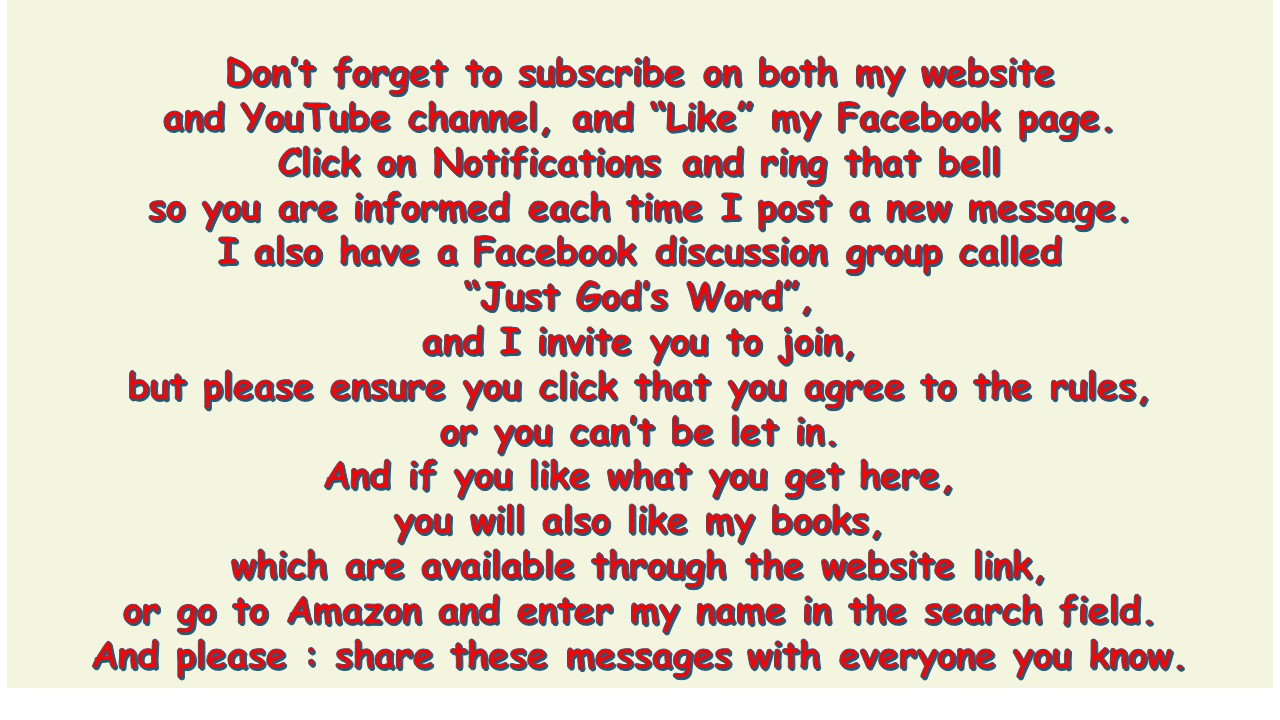We all know that the Bible tells us not to take vengeance, which is some form of retribution against someone who has harmed or wronged us in some way. Instead, we are told to wait upon the Lord, because he says that vengeance belongs to him (Deuteronomy 32:35).
But… did you know that there is a form of vengeance, a way to “get back”, that is actually recommended in the Bible?
If you prefer to watch a video, click on this link: Watch the video.

In the Book of Proverbs, we are told the following (Proverbs 25:21-22 CJB):
If someone who hates you is hungry, give him food to eat; and if he is thirsty, give him water to drink. For you will heap fiery coals (of shame) on his head, and Adonai will reward you.
Wow! If I treat someone who hates me with compassion, that will make them feel ashamed, and in a way, making them feel bad about themselves is a sort of retribution, isn’t it?
There is another example in the Tanakh that shows us how God takes his vengeance, in a nice way, on his chosen people. It is in Ezekiel 16:61-63, where God has been talking about how much Israel and Jerusalem have rejected him and prostituted themselves after the countries surrounding them, yet God will still bring them back to him. Here is what he has Ezekiel tell the people:
Then you will remember your behavior and be ashamed of it as you receive your older and younger sisters and make them your daughters, even though the covenant with you does not cover that; and I will re-establish my covenant with you. Then you will know that I am Adonai; so that you will remember and be so ashamed that you will never open your mouth again, so ashamed will you be when I have forgiven you all that you have done,’ says Adonai Elohim.
Here we again see that a form of vengeance is to be so kind and loving to those who have done you wrong that they will feel ashamed of themselves.
Now, don’t get me wrong- I am not saying that making someone feel bad is a good thing, and certainly not encouraged by God, but, then again, if we do what is right, and that particular thing makes us feel good that someone who has wronged us is now ashamed of themselves, well… where’s the sin in that? Who knows? Maybe shaming them will result in some repentance, and that is a good thing for them, so we could say making them ashamed might be a sort of vengeance that is actually good for them?
So… today’s message is short and simple (I know- that can’t be from me!), and it is this- if you have been harmed or wronged by someone, and you get the opportunity to do something good for them, do it!
If they are really beyond help, the very least it will do is demonstrate to them (and others) what a truly God-fearing person is like (and probably confuse the heck out of them); and if they have some semblance of morality, they will feel ashamed, which will serve them right!
Either way, you will be doing what is right in God’s eyes, and when we do what pleases God, he blesses us.
I don’t know about you, but if doing good for those who hate us not only can make them feel bad about themselves but will get us points with the Big Guy upstairs, who will bless us, sounds like a real WIN-WIN to me!
Thank you for being here and please remember to share these messages with everyone you know. That’s it for this week, so l’hitraot and (an early) Shabbat Shalom!

